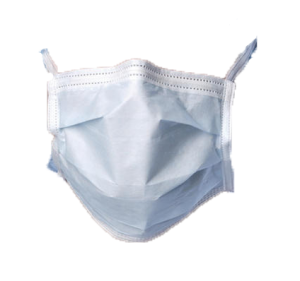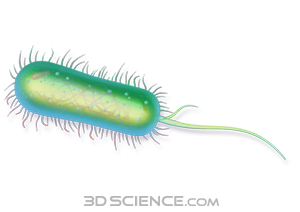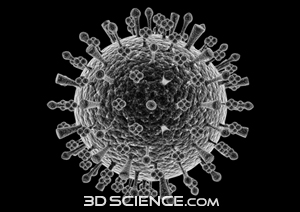Having very recently been laid flat with an entree of pharyngitis and a side order of tonsillitis, I thought I’d attack again the subject of germs, viruses and bacteria.
Note: Anyone with a microbiological background may well want to skip this post: it’s aimed at the non-experts among us. You know, the people at whom all those terrible anti-all-lifeforms-in-your-home ads are aimed :)
So yes, a primer!
First up: bacteria. Bacteria are tiny little single-celled beasties which live, literally, everywhere. If you’re interested, read up on extremophiles sometime. Having studied them for a number of years in university, I can vouch for just how interesting they are, and how fun they can be to play with*. They aren’t anything much like the cells of which we’re comprised, though. A small list:
Bacterial cells / Human bean cells
- No membrane-bound nucleus / Membrane-bound nucleus
- No mitochondria (or chloroplasts) / Mitochondria (or, if we were plants, chloroplasts)
- One chromosome / 23 pairs of ‘em. Oh yeah!
- Flagella! (sometimes; used for moving about etc). Very clever little molecular motors eagerly studied by scientists / Feet. Legs. Arms. Hands. Y’know, limbs.
- Make more by duplicating themselves asexually (generally) / Make more by doing things which might well make your grandma blush
There’s a whole lot more, too, but by now I think you’re starting to get the fact that not all cells are created the same. As it were.
Now, some bacteria make us sick. It’s important to note (and I’ll come back to this shortly) that many don’t. In fact, many bacteria are quite awesomely beneficial. To the point where I am tempted to break out me pompoms.
In terms of the bacteria that make us sick - well, we have the bacteria which cause pneumonia, tuberculosis, meningitis, strep throat, typhus, sepsis, and a bunch of other fun ones. Most make us sick by secreting chemicals we find toxic. One type causes extreme diaorrhea by exploding our gut cells and eating the cell contents (nom nom). Pivotally, it’s bacterial infections which are treatable by antibiotics, assuming the disease hasn’t become drug resistant, as in the case of some forms of TB in my country of origin (SA).
Amusingly, of course, antiobitics themselves are made from a particular type of bacteria called the actinomycetes. The blue mould on your bread? That’s one type, yes. Having grown many of them, I can vouch for them coming in blues, greens, yellows, pinks, and a fluffy black type that hung out at the edge of the petri dish away from all the others. Hehe.
And for the good ones? I thought I’d throw in the fact that the first line of defense in your immune system are the bacterial colonies which cover your skin. They’re the good guys, keeping the bad guys off you.** And here’s where I shall have a small rant. This is why you shouldn’t cover yourself, your children, and everything in your home in antibacterial stuff! I mean, good grief, people! Firstly, you’re killing some of the good guys as well as the bad guys. Secondly, a few of the bad guys around is good for the immune system, particularly of children. Children who live in bacteria-free environments become very sickly adults. Seriously. Instead, have them go out and eat potting soil or something (I did, in Africa, and have the immune system of an ox for the most part). Finally - you’re probably helping to build superbugs. Well done.
* ahem *
Now, feeling slightly calmer, I’ll move on to viruses. These are completely different from bacteria. Totally. For one thing, there’s still some fairly amusing debate going on concerning whether they can be classified as ‘alive’ or not. They’re not cells. Instead, they’re little…entities…made up simply of genetic material in a coating of some sort and available in shapes to suit every taste. They’re generally found floating around in the air, water, bodily fluids or on surfaces, and like to get inside cells to cause havoc. There are many different types of them, and they all do different things inside cells.
It’s important to point out that infecting cells is what viruses do. It’s how they survive to make more of themselves. Unlike bacteria, they are unable to survive out in the real world (although some can persist for quite a while). Luckily, not all of them make their hosts sick or kill them. In fact, that’s what the silly viruses do, as they’re killing the thing which allows them to keep replicating and survive. Clever viruses learn to live in the cells of their hosts and replicate indefinitely, without ever causing significant damage. Like clever parasites.
Among those that make us sick, perhaps the most topical disease they cause at the moment is flu. And HIV. And, of course, the ‘we still don’t have a treatment for it!’ common cold. And gastro. And cervical cancer. And, well, thousands of others.And they make us sick, like viruses, in a number of ways. They might, as in the case of malaria, get inside a cell, replicate wildly, and then cause the cell to explode to release viruses which can then move on to affect other cells. Mmmmm. Or, like HIV, they can fundamentally interfere with our immune cells’ function, rendering us vulnerable to other diseases. Or, they can irritate our bodies enough to cause a fever and the release of all sorts of fun chemicals which are what actually make us feel so awful (as in the case of colds). You heard me - the horror caused by the common cold is mostly caused by our own bodies. Yay.
Now, we don’t have treatments for most viral diseases. Viruses are tricky to kill, ladies and gentlemen. Some mutate very fast. Some hide, almost imperceptibly, in our cells. Far better, if one is worried about a virus, to warn the immune system about it so that the immune system can then repel any attempts at invasion. This is what vaccination and immunisation do. Importantly, and this is something to watch your GP about sometimes, antibiotics don’t work on viruses! The best thing when you get a viral disease is lots of sleep, fluid and, if you like, you can treat some of the symptoms. Unless it’s a really serious viral disease, in which case there are sometimes anti(retro)virals available.
Germs
Finally, ladies and gentlemen, I would like here to proffer the information that, in fact, there’s no such thing as a ‘germ’. Not in a specific sense. Rather, germs are an extremely informal term for pathogens. And what are pathogens, one might ask? Well, it’s the group name for bacteria and viruses (and other things like prions***, and some fungi, protists etc) which make their hosts (eg. us) sick. That’s been italicised because, gasp, many of these lifeforms don’t, despite what the advertising industry might have you believing. Or, they may affect their host, but in a way which we like - I’m thinking about botrytized wines here. Of which New Zealand has some lovely ones…
Fever! (Fever when you touch me…)
Just a final thing I thought I’d throw in. So what causes a fever? And why is it generally a good idea to let it run its course? Well, your body is a little bit smart about things sometimes. Most of the pathogens which are able to infect us and make us ill are temperature sensitive, and attuned to our normal core body temperature of 36.5–37.5 °C. When our body senses that armies of bad guys are marching into our systems and breeding, they allow our core temperature to rise in the hopes of killing the beasties. A biological game of chicken. The very opposite of a cold war. Etc. Of course, we tend to die as well if we get too hot, and our bodies don’t have an automatic cut-off switch for stopping the fever when this happens. Which is why it’s a good idea to let a fever run on (and hopefully break), but a very good idea to get to a hospital fast if you get to 41.5 °C.
————————
* I really heart playing with petri dishes…
** They’re also the reason why we all smell different to each other - each person has an absolutely unique skin chemistry and immune system, which in turn affects the precise mix of bacterial colonies living on their skin. These little beasties are a large part of why we smell the way we do. Further…ever found someone to smell irresistible (without perfume/body wash scents etc)? Well, it means that you and they have very differently structured immune systems. This is good for any babies which could come from the union you’re now very tempted to engage in. So be warned :)
*** Prions are madly interesting. They cause Bovine Spongiform Encephalitis (BSE). How? They’re little warped proteins that go around persuading other proteins to warp. Like tiny little revolutionaries bent on the destruction of the system…



Pingback: Tweets that mention Germs, germs, everywhere (but what is one to think?) | misc.ience -- Topsy.com()